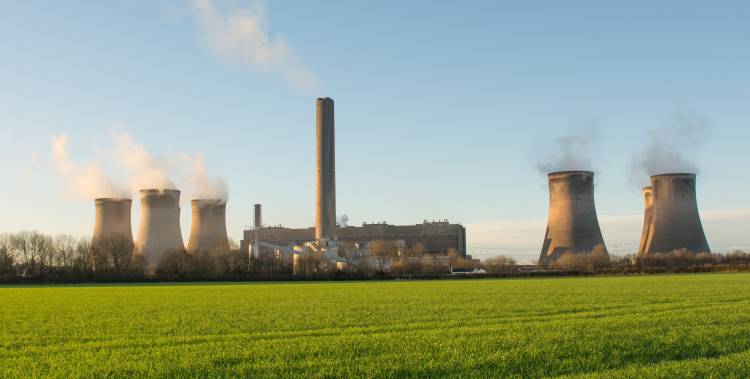SSE and RWE Shut Down Coal-Fired Power Plants

Energy firms RWE and SSE have both shut down their coal-fired power operations.
The Aberthaw power station in Wales and Fiddler’s Ferry power station in Cheshire were both closed on Tuesday after almost 50 years each in service.
The Aberthaw plant first started providing power to the UK in 1971, with the slightly larger Fiddler’s Ferry plant starting up services in 1973. At its peak, Fiddler’s Ferry generated enough power for 2m homes alone.
The closure of the plants leaves just four coal plants still active within the UK. The government ban on coal-fired electricity generation will come into effect in 2025.
Last summer, SSE made the ‘difficult decision’ to close Fiddler’s Ferry on account of the station losing around £40m a year and not being able to compete with renewable energy nor the more modern gas-fired stations.
The managing director of SSE’s fossil fuel operations, Stephen Wheeler, said that the closure was a pivotal moment in the company’s history, as well as the energy industry on the whole.
“It’s made a huge contribution to the local area, but it’s the right thing to do as the UK continues to move to cleaner ways of producing energy and take action on climate change,” said Wheeler.
“SSE is now the UK’s leading generator of renewable energy and we have committed to trebling our output by 2030. We will back up this renewable generation with super-efficient gas-fired plants, which we are also looking to decarbonise through emerging carbon capture and hydrogen technology”.
SSE now anticipates a 25% jump in its operating profits from its renewable energy projects, as its offshore windfarm, Beatrice, is now functioning at full power.
All coal-fired power plants within the UK will be shut down by 2025 due to the government ban on burning coal for power. Burning coal for electricity usually produces twice as many carbon emissions as the gas-fired equivalent.
A large number of the coal plants in the UK have made the decision to shut down much earlier than the deadline. This is because a new government tax on carbon has made the cost of running a coal plant too high to be economically viable.
Four years ago coal-fired electricity accounted for almost 25% of the UK’s electricity output, but last year coal-fired power was only 2.1% of the total power output in the UK.
Britain still has a handful of coal plants left. This includes the Kilroot plant in Northern Ireland, West Burton A and Ratcliffe-on-Soar plants in Nottinghamshire, and the Drax site in Yorkshire.
Read on our blog

With the government poised to implement tough new measures to...

Budget broadband provider TalkTalk has been notifying customers via email...

A year-long investigation by charity Citizens Advice has revealed a...

Education Secretary Nadhim Zahawi has announced a new commitment to...
